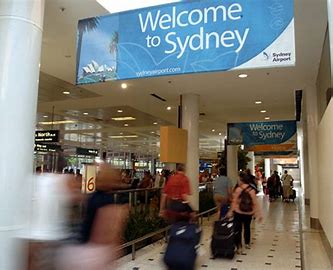NSW Health has confirmed two returned travellers have tested positive for the new Omicron COVID-19 variant in Sydney, making them the first known cases of the strain in Australia.
Both people, who are fully vaccinated and were asymptomatic, arrived in Sydney from southern Africa on Saturday, November 27.
They are among 14 people who arrived on Qatar Airways QR908, Doha to Sydney, about 7pm.
The remaining 12 passengers from southern Africa are undertaking 14 days of hotel quarantine, also in the Special Health Accommodation.
NSW Health said about 260 passengers and air crew who were also on the flight are considered close contacts and have been directed to isolate for 14 days regardless of their test result.
On Saturday, NSW Health changed its advice for international travellers returning to Sydney as a precaution to stem the spread of the new Omicron B.1.1.529 variant.
Anyone arriving in the state from the nine impacted southern African countries — South Africa, Lesotho, Botswana, Zimbabwe, Mozambique, Namibia, Eswatini, Malawi, and the Seychelles — is now required to go into hotel quarantine for 14 days.
That is irrespective of their vaccine status and brings NSW in line with measures also announced by the federal government.
Travellers from other countries are now also required to immediately go to their place of residence or accommodation and isolate for 72 hours pending further health advice.
On Sunday, NSW Premier Dominic Perrottet said the pandemic wasn’t over and living with COVID-19 also meant learning to live with new strains.
“We need to learn to live alongside the virus. We also need to live alongside the various strains of the virus that will come our way,” Perrottet said.
The variant that was first identified in South Africa has now been found in Hong Kong and suspected it may have arrived in Britain and Germany.
The World Health Organisation (WHO) has deemed it a “variant of concern”.
Dozens of countries including the United States and the United Kingdom have already closed their borders to the southern African nations.
Scientists said it could take weeks to fully understand the variant’s mutations and whether existing vaccines and treatments would work against it.
It was a sentiment shared by NSW Health Minister Brad Hazzard, who said the new variant was not well understood but the state government was working with other states and territories, and the federal government, to ascertain the risks.
“What we do know, if we look back at Delta, which was clearly a lot more infectious than its previous COVID incarnations, is that it only took three weeks for Delta to get across 53 nations,” Hazzard said.
“It’s going to be hard to ascertain just how many people are already here that may have been in those nine southern African nations in the last 14 days or so … What I would say to our community more broadly is that vaccinations really do make a difference.”
There were 185 new locally-acquired COVID-19 cases in NSW in the 24 hours to 8:00pm Saturday night and no deaths.
It’s the second day in a row no fatalities due to the virus were recorded.
There are 165 people currently in hospital with COVID-19 — 24 in intensive care and nine on ventilators.
Of those aged 16 and over, 92.4 percent are fully vaccinated and 94.5 per cent have received at least one jab of a COVID-19 vaccine.
In the 12 to 15 age group, 81.3 percent have received one dose and 76.5 percent are fully vaccinated.
SOURCE: ABC/PACNEWS














